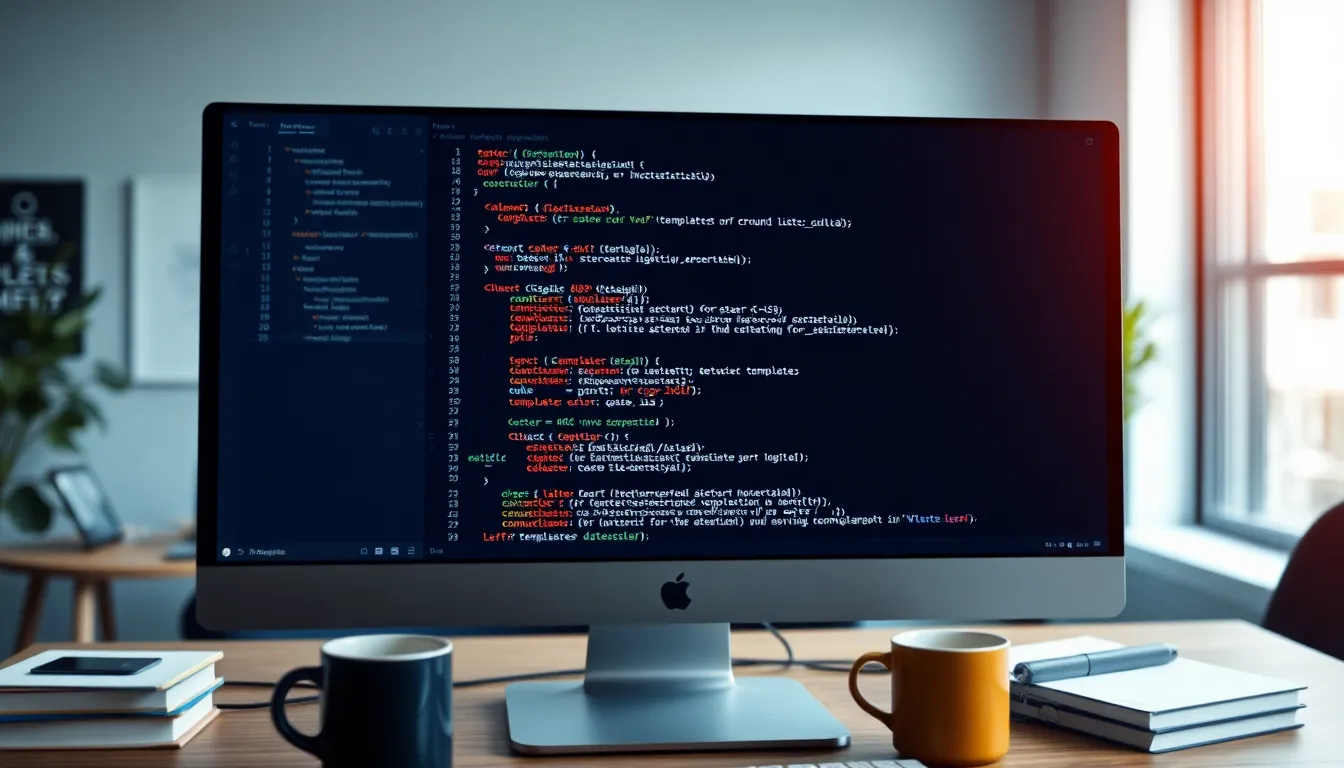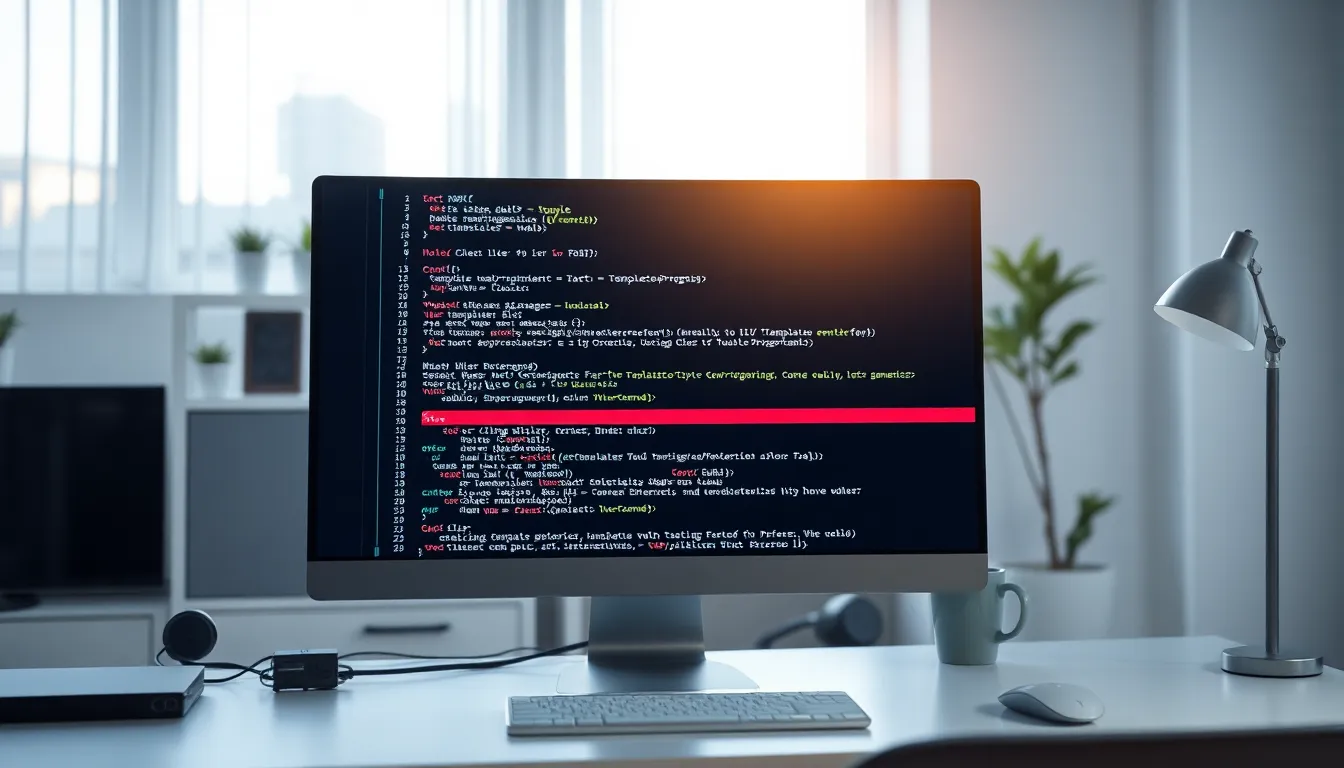Table of Contents
ToggleC++ can feel like a wild jungle of syntax and semantics, where even the bravest coders sometimes lose their way. But fear not! With the right tips and tricks, navigating this complex landscape can turn from a daunting trek into a smooth stroll. Whether you’re a seasoned developer or just starting out, there’s always something new to learn that can make your coding life easier and more enjoyable.
Essential C++ Tips
With the right tips, C++ programming becomes less daunting. Both beginners and experienced developers find value in these techniques.
Understanding the Basics
Familiarity with C++ syntax is crucial. Master fundamental concepts like variables, data types, and control structures. C++ supports various programming paradigms, including procedural and object-oriented. Grasping these basics allows efficient code structuring. Practice writing small programs to reinforce learning. Debugging and error handling enhances understanding significantly. Utilize online resources such as tutorials and forums for additional support.
Utilizing Smart Pointers
Smart pointers manage memory more effectively than raw pointers. They help prevent memory leaks and dangling pointers. Use std::unique_ptr for exclusive ownership of a resource. std::shared_ptr allows multiple owners to share a single resource. std::weak_ptr avoids cyclic references, essential for complex data structures. Adopting smart pointers simplifies memory management while enhancing code safety. Understanding their functionalities leads to better resource handling in C++.
Advanced C++ Tricks


C++ offers various advanced techniques that enhance code efficiency and maintainability. These tricks, such as template metaprogramming and move semantics, empower developers to write more robust applications.
Template Metaprogramming
Template metaprogramming enables programmers to perform computations at compile time. This technique reduces runtime overhead and can optimize performance. By utilizing templates, developers can create generic algorithms that work with any data type. Such code becomes reusable and adaptable, leading to better maintainability. C++ standard libraries often leverage this technique for functionalities like type traits and the STL (Standard Template Library). Using template metaprogramming also facilitates the writing of type-safe code, catching errors during compilation rather than execution.
Move Semantics
Move semantics allows resources to be transferred instead of copied, enhancing performance significantly. This C++ feature becomes advantageous when working with large objects, as it eliminates unnecessary deep copies. By implementing move constructors and move assignment operators, developers can efficiently manage resource ownership. When an object is moved, the original object relinquishes ownership without requiring additional memory allocations. Utilizing move semantics generally leads to faster and more efficient applications, especially in scenarios involving temporary objects, such as returning values from functions.
Best Practices for C++
Implementing best practices in C++ programming enhances both code quality and maintainability. Developers can follow several strategies to ensure effective coding practices.
Code Readability
Code readability matters significantly in programming. Use meaningful variable names to convey purpose clearly. Consistent indentation and spacing improve visual structure, making code easier to follow. Breaking down complex functions into smaller, more manageable ones simplifies understanding. Group related components logically, which enhances coherence. Developers often utilize comments judiciously to clarify complex logic, aiding future maintenance. Regularly revisiting and refactoring code can address readability issues, keeping it clean and efficient over time. Adopting a style guide, such as Google C++ Style Guide, provides additional structure and consistency across projects.
Exception Handling
Exception handling serves as a crucial aspect of robust C++ programming. Utilize try-catch blocks to manage errors gracefully during runtime. By catching specific exceptions, a program can avoid crashing and instead provide informative responses. Throwing exceptions when conditions arise leads to clearer error signaling. Always ensure resources are appropriately cleaned up in the event of exceptions, preventing resource leaks. Using RAII (Resource Acquisition Is Initialization) patterns with smart pointers helps in safely managing resource lifetimes. Developing custom exception types enhances clarity by making it easier to track errors related to specific components. Prioritizing good exception handling practices improves overall application reliability.
C++ Tools and Resources
C++ programming benefits significantly from various tools and resources. Utilizing the right IDEs, compilers, libraries, and frameworks enhances the overall coding experience and promotes efficient development.
IDEs and Compilers
Popular IDEs for C++ programming include Microsoft Visual Studio, Code::Blocks, and CLion. Each IDE offers unique features like code completion, debugging support, and project management. Compilers play a crucial role as well; GCC and Clang are widely used for their performance and compliance with C++ standards. Developers often choose IDEs and compilers based on project requirements, thus ensuring optimal coding workflows and flexibility.
Libraries and Frameworks
C++ libraries and frameworks streamline development by providing pre-built functionality. The Standard Template Library (STL) is essential for container classes, iterators, and algorithms, enhancing code efficiency. Qt stands out for its powerful GUI capabilities, making it a favorite for application development. Boost offers a range of utilities, from smart pointers to multi-threading support, catering to various programming needs. Developers extensively leverage these libraries and frameworks to speed up their projects and improve code reusability.




